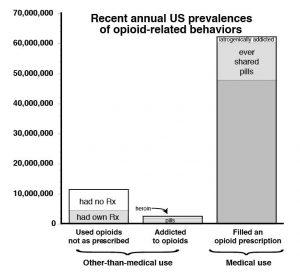 Reviews To Read – November 29, 2018.
Reviews To Read – November 29, 2018.
This commentary on the opioid crisis was written by two NIDA IRP investigators (clinical investigator David Epstein and preclinical investigator Yavin Shaham), along with former Clinical Director Markus Heilig. It challenges misconceptions about the nature of the crisis, and it suggests solutions that are–as the authors say–“probably not what you expected from three neuroscientists writing for other neuroscientists.”
Science-Based Actions Can Help Address the Opioid Crisis. Journal Article
In: Trends Pharmacol Sci, vol. 39, no. 11, pp. 911–916, 2018, ISSN: 1873-3735 (Electronic); 0165-6147 (Linking).
